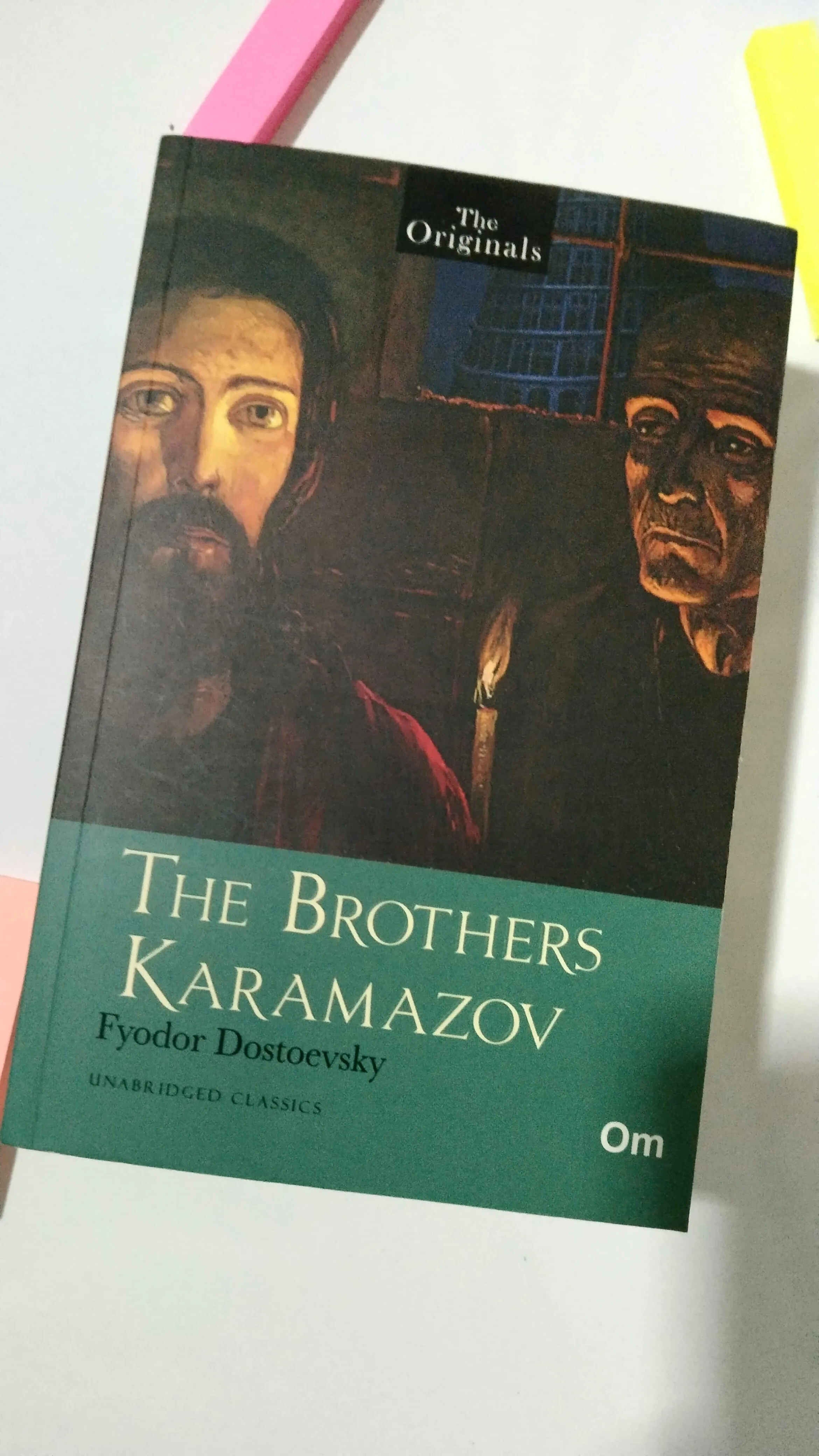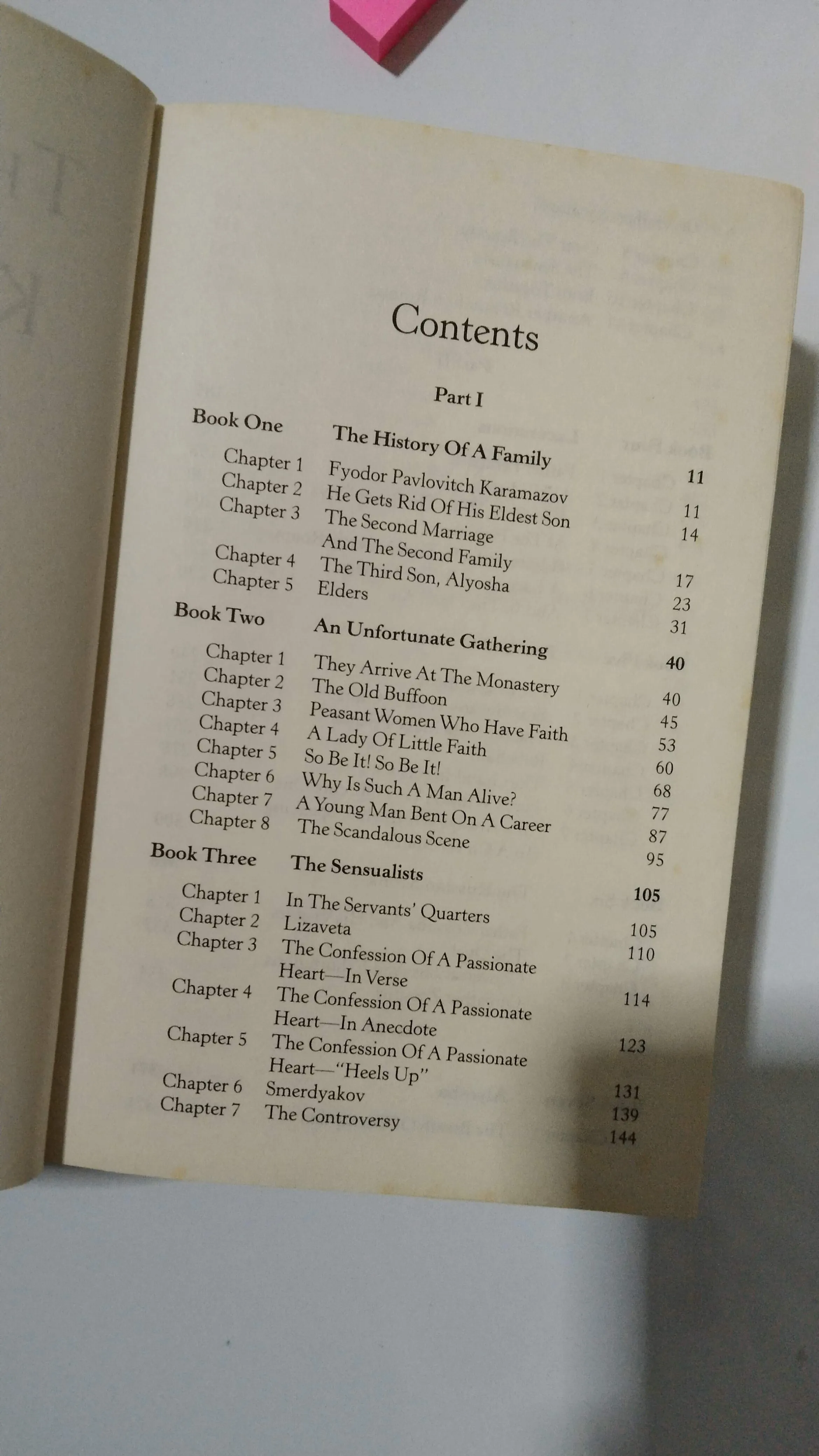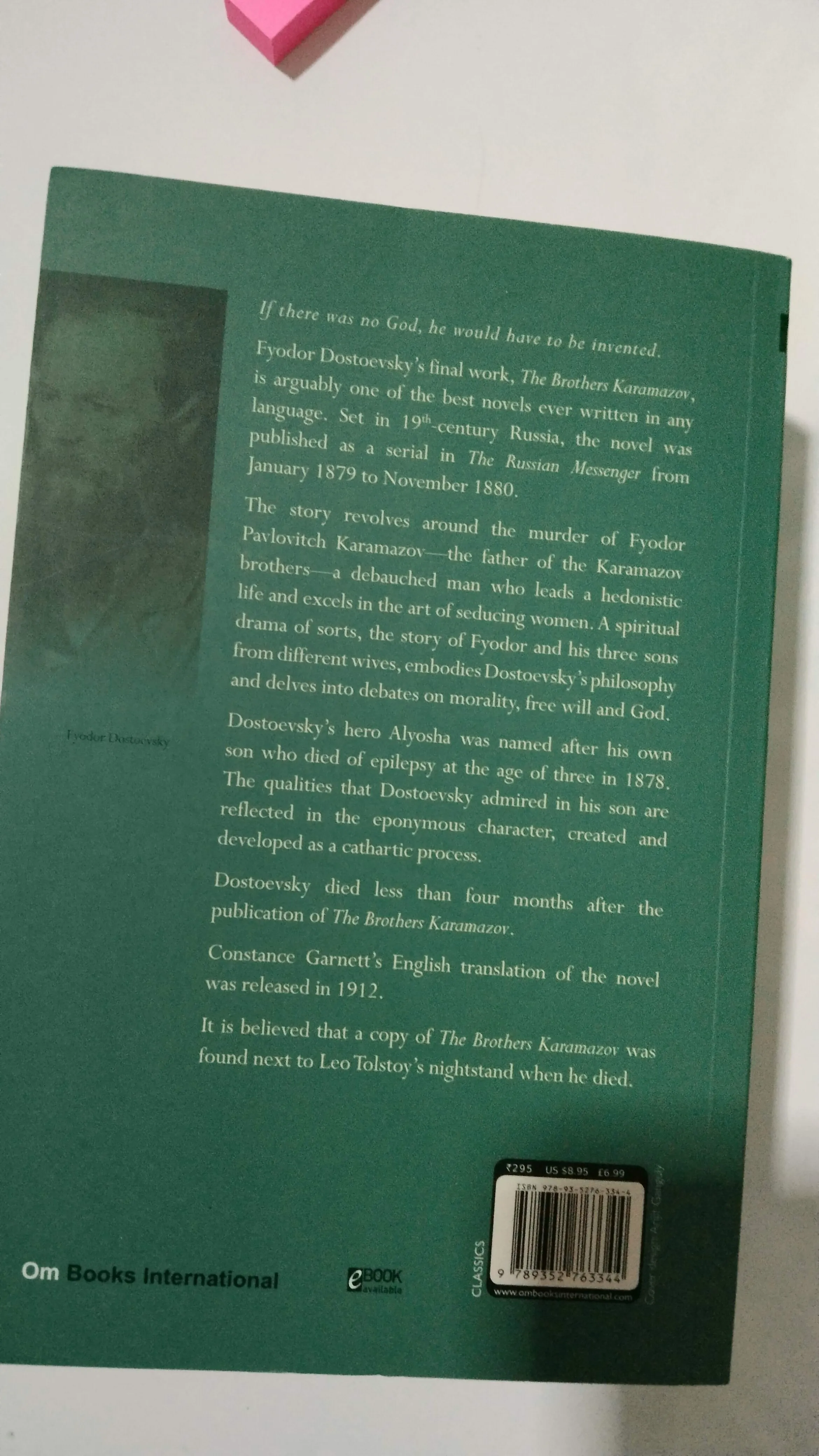The Brothers Karamazov
by Fyodor Dostoevsky
Explores themes of faith, morality, love, and the human condition through the lives and relationships of the Karamazov brothers, and their father, and is widely considered to be a masterpiece of Russian literature.



"The strength of a man's virtue should not be measured by his special exertions, but by his habitual acts."
- Fyodor Dostoevsky, The Brothers Karamazov
My Review:
A thought-provoking and deeply psychological novel by Fyodor Dostoevsky. The book tells the story of three brothers, Dmitry, Ivan, and Alexei Karamazov, and their complex relationships with each other and their father, Fyodor Karamazov. The novel delves into the moral and existential questions that plague the characters, making for a gripping and intense read.
One of the most striking aspects of the novel is the portrayal of the characters. Dostoevsky masterfully depicts the inner turmoil and conflicting emotions of each character, making them feel like real and relatable individuals. The reader is able to understand and sympathize with each brother's struggles, despite their vastly different personalities and beliefs.
Another aspect of the novel that stood out was its exploration of religious and philosophical themes. Dostoevsky uses the novel to delve into questions of faith, morality, and the meaning of life. The characters are all searching for answers to these questions in their own ways, and the reader is able to see the different perspectives and the impact they have on the characters.
The plot of the novel is also incredibly well-crafted. The story builds to a climax that is both shocking and satisfying. The book also raises many questions and leaves the reader with much to ponder even after finishing the book.
In conclusion, "The Brothers Karamazov" is a thought-provoking and masterfully written novel that explores the complexities of human nature and the search for meaning in life. It is a must-read for anyone interested in philosophy, psychology, or literature.
Some of the lessons I learned from this book are:
- The complexity of human nature - The characters in the novel are all flawed and have multiple sides to their personalities.
- The importance of self-awareness - The characters' understanding of themselves and their actions is a crucial aspect of the novel.
- The impact of relationships - The relationships between the brothers and their father have a significant impact on their lives and beliefs.
- The power of forgiveness - The novel illustrates the importance of forgiveness in healing and moving forward.
- The search for meaning in life - The novel explores the different ways in which the characters seek to understand the meaning of life.
- The importance of empathy - The characters' ability to understand and empathize with others is a key theme in the novel.
- The struggle between rationality and emotion - The characters are often torn between their rational thoughts and emotional impulses.
- The impact of societal expectations - The societal expectations placed on the characters play a role in shaping their beliefs and actions.
- The dangers of extremism - The novel illustrates the negative consequences that can result from extreme beliefs and actions.
- The power of free will - The characters are all grappling with the concept of free will and the impact it has on their lives.
This is a great book and it is a classic, it will make you question your own beliefs and actions, and it is a must-read for anyone interested in understanding human nature and the search for meaning in life.